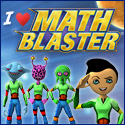We recently took on home educating our boys and I decided to read this book in an attempt to help me find ways to help our "struggling learner" to reach his full potential. I also needed to find ways to help restore their “natural love for learning'”
It had me hooked from the first chapter & I’ve just finished it. 294 pages in 1 day, a new personal record for me. WOW, what an amazing source of useful information. It has helped me “see” why the system has failed our sons so miserably & why it has killed their love for learning. I “saw" many areas in which to amend my teaching strategies to better fit in with their learning styles & preferences. It has given me insight on how to restructure their next school year in a way that would make our home education journey less stressful and yet more productive…
This is an absolute MUST read for ALL parents as well as educators. I believe if all schools implemented teaching strategies that addressed ALL learning styles in the classrooms, schooling in our country could be revolutionized. Unfortunately regular educators care only about competence in its most traditional & bookish sense – reading, writing, science, social studies & Maths in boring text and worksheets. Students who are talented in art, music, dance, mechanical repair, computer programming, or are creative in not-traditional ways wither away & become the underachievers, learning disabled & ADHD labelled.
Parents will be able to discover where their children “fit” into the system. They will be able to determine whether the school is nurturing their children’s multiple intelligences. Textbooks (and their accompanying worksheets) structure 75% to 90% of all the learning in our schools whereas the part of the brain that thrives on lectures and worksheets probably takes up less than 1% of the total available for learning. The current “worksheet wasteland” would be transformed and instead we would have happier & less stressed children in our schools. Less children would struggle through school and end up labelled “learning disabled” or “ADD/ADHD”, instead their true gifts and abilities will be drawn out & developed. These stale teaching methods are referred to as being “brain-antagonistic” and shut down potentials rather than open them up.
" What happens to the learners in this worksheet wasteland? The truth is that most of them learn to comply and remain passive and may outwardly appear to be very successful students. Other children, unable to go along with such stale fare as they're given daily in the classroom, begin slipping in their achievement but are able to keep up appearances to a greater or lesser degree. These are the underachievers that we keep hearing so much about. Lawrence Green in his book Children Who Underachieve, estimated that up to 50% of our nation's children are underachievers. Finally, there is a group of children totally unable to keep up with the charade, mostly because of their own unique ways of learning clash so severely with the narrow way that the schools go about educating them. This group has earned a couple of unjust lapels in recent years: learning disabled (LD) and attention deficit hyperactivity disordered (ADHD)"
"It's been said that if we taught children to speak the way we teach them to read, we'd have a nation of stutterers. This is just another way of saying that our schools are selling millions of kids short by putting them into remedial groups or writing them off as underachievers, when in reality they are disabled only by poor teaching methods. We hear so much about the learning disabled or ADD child in the news media. It's probably truer to say that these children are "worksheets disabled", "curriculum disordered", or simply "dysteachic".
The schools fail our children when they limit their teaching methods to lectures, textbooks, worksheets and tests.
They dampen the thirst for knowledge in all children by teaching them things that have little relevance to their personal lives."
Parents with children that have been labelled "learning disabled" or “ADD/ADHD” will receive insight into the reasons why your kids have been labelled and equip you with information & ideas on how to change their learning experience. It will enable you draw out their inner strengths and abilities in order to help them learn.
"ADD seems like a matter of convenience to many adults who are in charge of "round kids" who don't fit into the "square holes" of home and school. The label helps a teacher get a troublesome child out of a regular class and into a special education room, helps a parent get a drug prescription to set the problem right (instead of first considering other more fundamental changes, and even helps many students get more time to take tests and complete assignments in class. Unfortunately, though it's the child who gets saddled with the disability label and has to go through school looked upon as less normal than the other kids. Nowhere in this litany of deficit, disability, and disease is there the recognition that these children may learn very well IN THEIR OWN WAY."
After reading this book, parents will be more aware of labelling and the affects that psychological testing can have on their children. Parents will be able to make more informed decisions regarding testing, instead of willingly accepting educators’ recommendations.
"And yet, when these children enter school, virtually all the focus of teachers and parents gets placed upon their "disability". It reminds me of the story about the animals who decided to create a school for climbing, flying, running, swimming and digging. They couldn't agree on which subject was most important, so they said all the students had to take the same curriculum. The rabbit was an expert in running but almost drowned in swimming class. The experience shocked her so much that she never could run as well after that. The eagle was a whiz at flying, of course, but when he showed up for digging class, he was so inadequate to the task that he got assigned to a digging remediation program. It took up so much of his time that he soon forgot how to fly. And so on with the other animals. The animals no longer had the opportunity to shine in their areas of expertise because all were forced to do things that did not respect their individual nature. In much the same way, we're doing that with our children, neglecting their gifts and talents while at the same time forcing them to waste hours of time in boring inappropriate remediation groups and special classes. Eagles are meant to fly!"

In short there are 8 different kinds of intelligence and we need to teach all relevant to our children in order to help them reach their full potential.
-
Linguistic ~ Word Smart / ability to use words effectively
-
Logical-Mathematical ~ Number Smart / capacity to work well with numbers and / or be adept at logic or reasoning
-
Spatial ~ Picture Smart / ability to visualise pictures in one’s head or to create them in some two- or three dimensional form
-
Body-kinaesthetic ~ Body Smart / using the whole body & hands
-
Musical ~ Music Smart / capacity to carry a tune, remember musical melodies, have good sense of rhythm or simply enjoy music
- Interpersonal ~ People Smart / ability to understand and work with other people
-
Intrapersonal ~ Self Smart / self-understanding & knowing who you are, what you’re good at & what you’re not good at
-
Naturalist ~ Nature Smart / ability to identify the natural forms around us
Address all these styles & your children are bound to succeed
This book is available as paperback & for Kindle. If you don’t own a Kindle,
download the
FREE Kindle for PC application below in order to read this and many more Kindle books.
KONOS 5 D’s of Learning motivate through FUN:
DO Children love hands-on. A wise teacher uses the five senses as an ally, capitalizing on the child’s God given curiosity and interest.
DISCOVER Hands-on increases opportunities for children to figure out their own answers, thus developing their critical thinking.
DRAMATIZE Children remember, NOT merely cover, the things they dramatize whether it is a starfish, an explorer, a poem, or an atom.
DIALOGUE Parents, NOT textbooks, are the best teachers. KONOS teaches parents how to dialogue with children to reinforce learning .
DRILL After immersion in a topic, NOW it is time to drill and wrap-up to crystallize concepts and information.





![kindle-for-pc-tcg._V151201458_[5] kindle-for-pc-tcg._V151201458_[5]](https://blogger.googleusercontent.com/img/b/R29vZ2xl/AVvXsEjUeGGkZTGkEBME0GD2e1lVPbH2hAhAxf1cYFPBtWfhk9h0Pmf-smZZADPaM9N3zgeAjO5pqAbLCZZ-26JXEThrHLtYRRxzbO4j6lorW55OalXqRZAtGk-vkv7cy41_MWBuS-UE5HP317c/?imgmax=800)























No comments:
Post a Comment